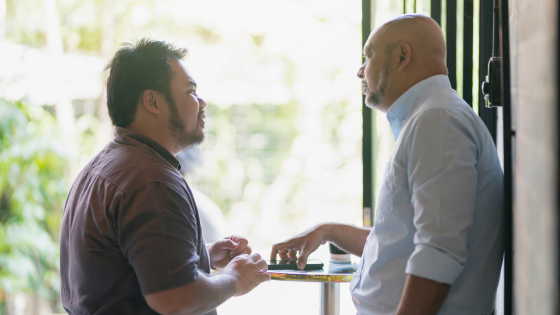The grocery store seems to be a petri dish for fear right now. This morning, the news came across the internet that there might be an extended social distancing imposed across the United States. I began to think about the things that I hadn’t picked up this weekend at the store.
So, what did I do? I drove quickly to the store to get these few things.
Big surprise. I was not the only one there. The lines were long. I was looking at the different baskets to see what types of things people were picking up. And suddenly, the hand sanitizer – which I had not been able to find for two weeks – came out on the shelf. The guy next to me picked up a bottle and the woman stocking the shelves said to him – “Yeah, this stuff goes fast lately.”
I heard my internal voice speak – “only what you need! Others need it too.” It was a decision that I would not have been making normally. “How many bottles?Seriously, how many bottles of hand sanitizer should I take? What if I need more and I don’t take it now.”
Many of us have been there.
While I was standing in line – thinking about one more bottle of hand sanitizer – I started watching people and I began to feel the fear. It was heavy in the air. Gloves – masks – sanitizing carts – not looking at people in the aisles – distancing between ourselves as we cross and stand. All necessary and yet, it didn’t feel normal to me.
It made me think about my own fear and it made me think about the fear that I am sensing from others. That can feel overwhelming.
So, as leaders, we need to ask ourselves: Where do our own feelings end and where we are picking up on other people’s fear?
Neuroscience tells us that our executive brains can be hijacked by cortisol and our cortisol spike may be rising even more as we sense other people’s fear. We could be making decisions that we wouldn’t normally make and behaving in ways we wouldn’t normally behave.
How can we manage it during this time?
Our breath supports our executive decisions. If we can step back, take a moment and breath, we will be better equipped to serve our people. We have to manage our own cortisol first by breathing and then our teams/staff/employees can possibly experience a calmer, less fearful presence from us.
We don’t know what will happen tomorrow – what decisions we may need to make. We can breath in order to remain more connected to ourselves and others will remain calmer as well
So, standing in the grocery store – I took a breath. I made an executive decision and only took what I truly needed – I left some for others. I didn’t respond to the fear that I was sensing. I held space. Stopped long enough to think about the bigger picture and that will make a difference in someone else’s world.
Let’s lead through the fear – rather than stopping and hanging out – It can create a more present and conscious world for all of us.


